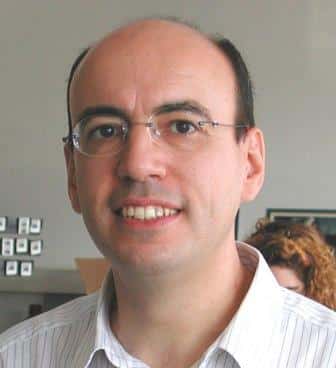


Joan O. Grimalt
Since 1992 Joan Grimalt has been a Researcher Professor for the Spanish Council for Scientific Research (CSIC). In 2008 he became the Director of the Institute of Environmental Assessment and Water Research (IDÆA) for the CSIC and since 2011 he is the Director of the Center of Research and ...
About Joan O. Grimalt
Since 1992 Joan Grimalt has been a Researcher Professor for the Spanish Council for Scientific Research (CSIC). In 2008 he became the Director of the Institute of Environmental Assessment and Water Research (IDÆA) for the CSIC and since 2011 he is the Director of the Center of Research and Development from CSIC.
Joan Grimalt studied Chemical Engineering at the Chemical Institute of Sarrià, at Ramon Llull University. Additionally, he has a degree in Chemical Sciences from the Universitat Autónoma de Barcelona and a PhD in Chemical Sciences. Besides these studies he has completed post-doctorate stages at the College of Oceanography of the Oregon State University (USA) and at the Chemistry Faculty at the University of Bristol (UK).
The main research areas that he focusses on are the study of natural and anthropogenic organic compounds as markers of the health status of ecosystems and organisms (including humans). In this context, Joan Grimalt has been leading a research group that has been active for the last 25 years. The research group spends considerable effort in the analysis of pollutants in freshwater, tap water, ground water, marine water and swimming pool water.
Futhermore, Joan Grimalt also specializes in the field of climate change. The most outstanding research results he has acquired are related to the reconstruction of abrupt changes that have occurred in the north Atlantic during the last 420,000 years; showing that they are related to the flow changes of deep waters coming from the Arctic or/and Antarctic. Other important results are related to the description of the changes in wind regime during abrupt variability abrupt changes that have occurred in the western Mediterranean during the last glacial period and the Holocene. Another important result concerns the generalized cooling of the sea surface waters in the Holocene (as an effect to global warming).
In the field of pollutants the most significant results concern the accumulation of heavy weight organochlorine and organobromine compounds in the high mountain ecosystems following a reverse trend to environmental temperature and therefore at higher elevation. Another important result concerns the identification and the discovery of the health risks related to the accumulation of residues containing high concentrations of organochlorine compounds and mercury in the Flix water reservoir, in the Ebro River. This discovery has led to the formation of a governmental plan for the restoration of the site involving the removal of 500-700 thousand tons of residues. They are going to be cleaned and disposed in a landfill constructed for this purpose.
